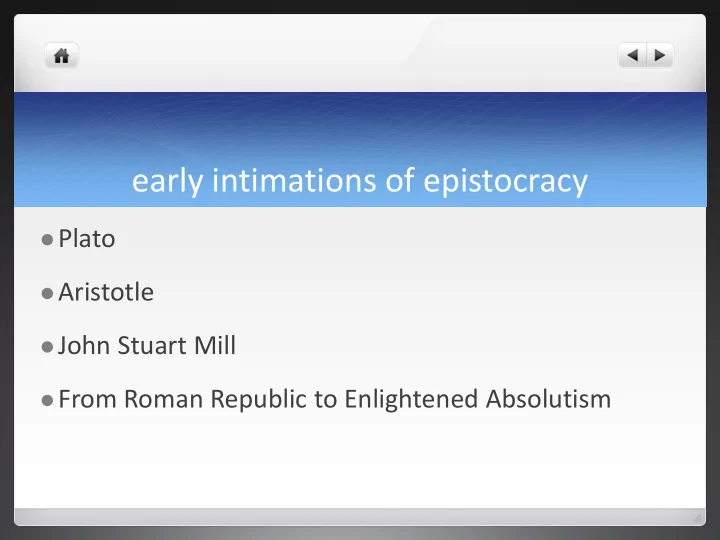

early intimations of epistocracy Plato Aristotle John Stuart Mill From Roman Republic to Enlightened Absolutism
Basis for Modern Challenge Two consequences of the ‘moral order’ of modernity The meta-democratic assumption The sceptical mind
Estlund’s Epistocracy is not Plutocracy Timocracy Oligarchy Aristocracy Stratocracy Theocracy Bureaucracy Democracy
Taking expertise seriously No single logic of rule attractive ( including democracy, which today needs supplements of bureaucracy and epistocracy ) Most other logics of rule unappealing Often other logics of rule are a kind of ‘epistocracy by proxy’
The modern paradox of expertise in politics - cultural and structural Cultural Post-metaphysical demand for knowledge-based government That knowledge remains fragile and subject to challenge over competence and good faith Structural Decline of representative nexus Self-referential response of government exacerbates decline
The EU in epistocratic terms The EU a natural outgrowth of ‘paradox’ of expertise Also a unique form of bureaucratic discipline to ensure mutual inter-polity self-binding Eurocracy a fusion of these two tendencies – we see this in its Political Culture Institutional Architecture
Pathological Tendencies Greater Distancing Scapegoating/Displacement Ulysses in bad faith Ambivalence over means and ends Populist target
Recommend
More recommend